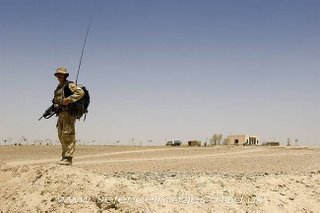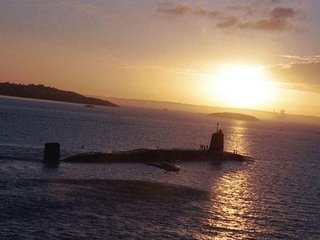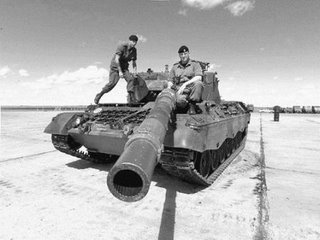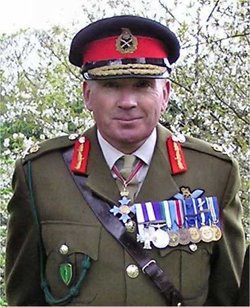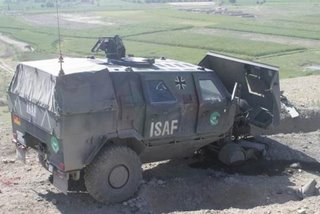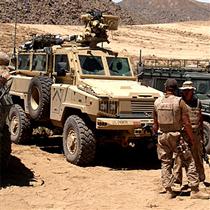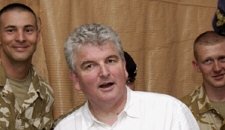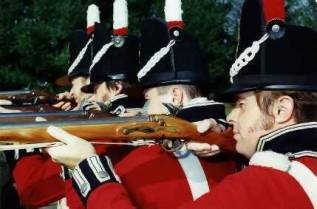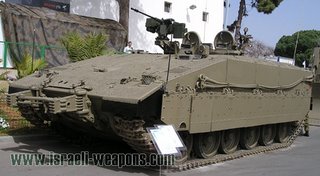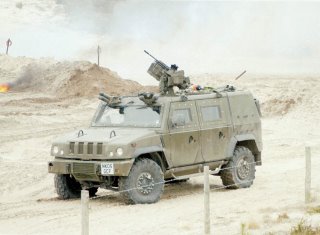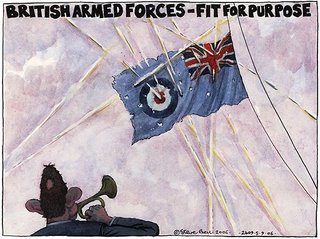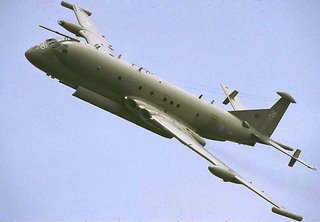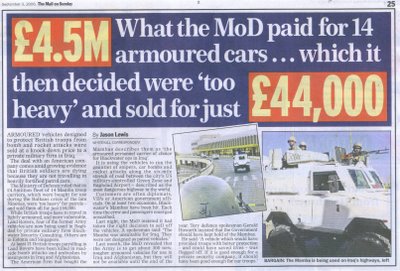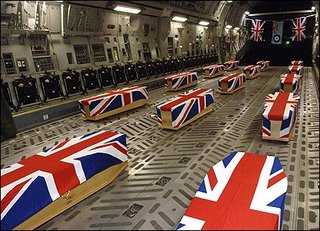
Having dealt in a little detail with the Afghan situation on Sunday, what is particularly remarkable about the piece to follow is that it cites the European Union's special representative in Afghanistan, Francesc Vendrell, who not only seems to make a great deal of sense but also seems to corroborate the source we used in our Sunday piece.
The details we picked up not from the UK media but off a Texan
online news service with a shorter version of the same report from the Chinese news service
Xinhua.
Now, before dealing with the reports and other information, the summation of which has worrying implications – a personal note.
Frankly, I am getting more than a little tired of the self-obsessed indulgence the media is currently displaying with the Tony and Gordon show in Manchester at the Labour Party conference. But that irritation also extends to the British political bloggers who seem quite content to follow in the wake of the MSM and prattle endlessly about exactly the same issues.
Often the humour and analysis is about the level one would expect of the 4th form of a second-rate boys boarding school and I have heard more intelligent comment from college students in fifth and sixth forms in the lectures I have been given to schools recently.
In a nutshell, the Tony and Gordon show is fluff – nothing is going to be decided immediately and much water is going to pass under the bridge before things come to a head. Meanwhile, we are a nation at war, we do have troops committed to a dangerous foreign venture and, if the material we have accumulated in this and our previous reports is at all representative of the situation, there is the potential for the situation to go seriously belly-up. In that case, over the winter, we could be seeing soldiers coming home in coffins in very large numbers.
And, if the MSM does not have the maturity to lead the way, it is for the bloggers to take over and demand a serious debate on a situation which is becoming ever-more unsettling. As bloggers, you can indulge in your idle tittering and puerile humour or you can act as grown ups. The choice is yours and your readers will be your judges.
Returning to the substantive issues, the details we have seen echo the report by Canadian journalist Graeme Smith, which we reviewed on
Sunday, Vendrell – who lives in Kabul – says that the West must "find out more" about the Taliban insurgency in southern Afghanistan before it can defeat it.
Standing aside from the fact that we actually have an EU official who seems to be talking sense, we will take our information from where we can get it. Apparently he was speaking to journalists in Brussels – and event, as we indicated, entirely unreported by the British MSM, when he suggested that NATO and other Western institutions did not have a sufficiently clear idea of who they were fighting. He told journalists that:
We do need to seriously look at how the Taliban is composed, what goes by the name of Taliban, who are the people that we label Taliban …Are they all part of a single group under the command of Mullah Omar? Or are they autonomous groups who perhaps do not have the kind of national or Islamist agenda that the Taliban are known for, but perhaps have specific grievances regarding certain provinces in the country? We need to find out more about that.
This was precisely the issue addressed by Smith who reported that many of the “insurgents” killed in the just completed Operation Medusa were not in fact Taliban but aggrieved local tribesmen, rebelling against corrupt and violent government forces and police.
We also reported on Captain Leo Docherty warning that, "Having a big old fight is pointless and just making things worse," but Vendrell seems to be contradicting this by calling for "quick" military strikes against insurgents. But then, like other commentators, including Docherty, he says these must then be followed by reconstruction efforts to deny the Taliban new recruits.
Both Vendrell and Docherty agree on the need to avoid civilian casualties, which Vendrell says "come at a political price." As to the follow-up, he wants the area of governance by the central government extended progressively from the areas which have been taken over, coupled with immediate improvement in governance and improvement in reconstruction."
The reference to "improvement in governance" perhaps hints that all is not well with the current situation, but while Vendrell does not elaborate, he does say that the reconstruction effort must become much more visible, and that Western aid must shift from humanitarian assistance to support for the overall economic rehabilitation of the country. This Vendrell says is necessary to undermine support for the militants.
"At the end of the day," he argues, "the reason why the Taliban are able to recruit so many people is less due to ideological grounds, [and] more because the Taliban is able to pay better than the police and the army pay their own [people]."
I am not entirely sure about this last comment as Graeme Smith indicated that the police were being recruited from specific tribal groups, which was partly the cause of the problem, but it might also be the case that this tribal group is not being recruited by the Taliban. Neverthless, if government servants are not being paid enough, their loyalty certainly cannot be assured.
However, as one might expect, Vendrell supports the request of NATO commanders for more troops, and he also takes issue with Pakistani president Pervez Musharraf, disputing that the deals Musharraf has agreed with tribal elders in Pakistan's Pashtun region of Waziristan provide a guarantee that Taliban infiltration will stop. He notes that after the first such agreement with Southern Waziristan, infiltration from Pakistan into the neighboring Afghan provinces of Paktia and Khost had, in fact, increased.
Putting this together so far, it is common ground that we do not have anything like enough troops in theatre and that they are seriously – if not dangerously – under-equipped. Contrary to some reports, it seems unlikely that there will be any respite for out troops this winter and, if the Vendrell report is correct, Taliban reinforcements are flooding over the Pakistan border.
To counter this, Nato troops should be holding the ground they currently occupy and extending their grip, while also pushing ahead with major development projects, which also require security.
But, from
The Independent this weekend, we learn that that British forces in Afghanistan are restructuring their operations. The policy of setting up "advanced platoon houses" will be quietly abandoned and British troops will instead be concentrated in more easily defended bases near the towns of Lashkargar, Grishk, Sangin and Musa Qala, as well as their main base, Camp Bastion. The outposts in the Sangin Valley are still being manned by British troops, but they are due to be handed over to the Afghan army, and no new ones are likely to be established.
In other words, there is to be no holding of ground or accelerated development. Instead, rather as in Iraq, the British contingent is retreating to barracks for the winter, leaving the field to the Taliban, and the population at the mercy of the murderous and wholly inadequate government forces who are parties to a vicious tribal feud.
Even if the Taliban do not step up attacks over the winter – and the most likely outcome is that they will - in the Spring if not sooner, the Army will face a re-invigorated Taliban, reinforced by recruits from over the border and from local citizens who will have been, effectively deserted by Nato forces and have thus turned fighters, siding with the Taliban.
Even the
Independent asserts that, "most worryingly, there appears to be no shortage of Islamist fighters coming across the porous Pakistani border to replace the killed and wounded", so the body counts of which we have been hearing so much recently are of very little significance.
The paper cites an officer saying, "We are flattening places we have already flattened, but the attacks have kept coming. We have killed them by the dozens, but more keep coming, locally or from across the border. We have used B1 bombers, Harriers and Mirage 2000s. We have dropped 500lb, 1,000lb and 2,000lb bombs. At one point our Apaches [helicopter gunships] ran out of missiles, they have fired so many."
During the winter, air cover will be harder to maintain and re-supply will be more difficult. One does not have to be alarmist to assert that there is a potential disaster in the making. The signs are all there for anyone who wants to see.
Basically, as I see it, we have two options. We either heavily reinforce the Nato contingent and urgently upgrade its equipment and logistic capability or we pull out. Anything else is to invite slaughter.
That analysis might, of course, be wrong. But I haven't seen any better and people in a position to know better than me do not disagree with it. If it is halfway right, something has to be done – soon. Not in the spring or sometime never but now. Given a grown-up opposition, this would be a main issue in the Conservative Party Conference next week, but I somehow doubt it will be.
That does, as I say, leave the bloggers. You – collectively – can continue to play your little games. Or you can show up the media and the politicians and make the running. Which is it to be?
COMMENT THREAD
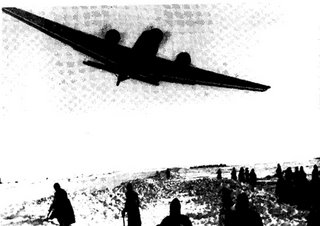 The news that almost 180 British soldiers have been recommended for gallantry awards for their efforts in Afghanistan, including "several" Victoria Crosses, brings to mind the last days of the siege of Stalingrad, when Junkers 52s from Hitler's Luftwaffe were despatched to airdrop container-loads of Iron Crosses to the beleaguered troops of the 6th Army.
The news that almost 180 British soldiers have been recommended for gallantry awards for their efforts in Afghanistan, including "several" Victoria Crosses, brings to mind the last days of the siege of Stalingrad, when Junkers 52s from Hitler's Luftwaffe were despatched to airdrop container-loads of Iron Crosses to the beleaguered troops of the 6th Army. On the other hand, if the situation is – albeit temporarily – slackening off in Afghanistan, it seems that, after months of inactivity in Iraq, action is underway by 3,000 British troops in Basra, aimed at curbing the widespread lawlessness in the province.
On the other hand, if the situation is – albeit temporarily – slackening off in Afghanistan, it seems that, after months of inactivity in Iraq, action is underway by 3,000 British troops in Basra, aimed at curbing the widespread lawlessness in the province.
